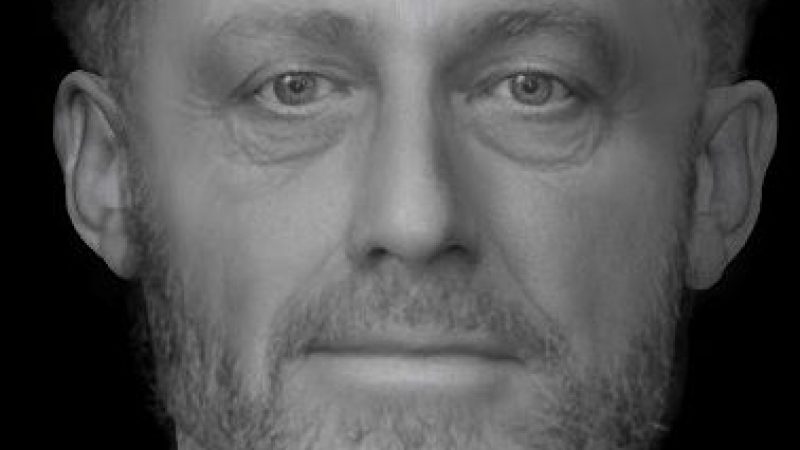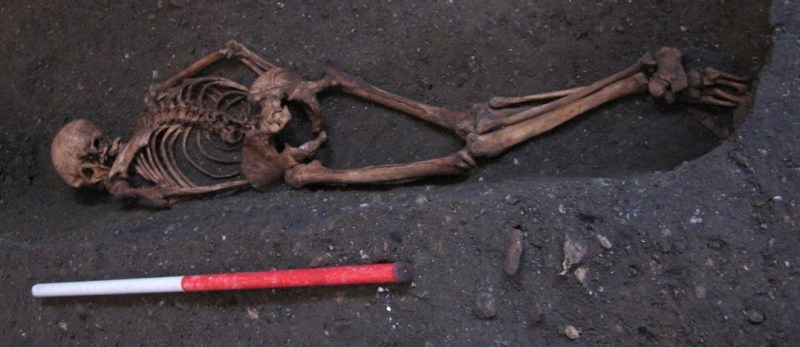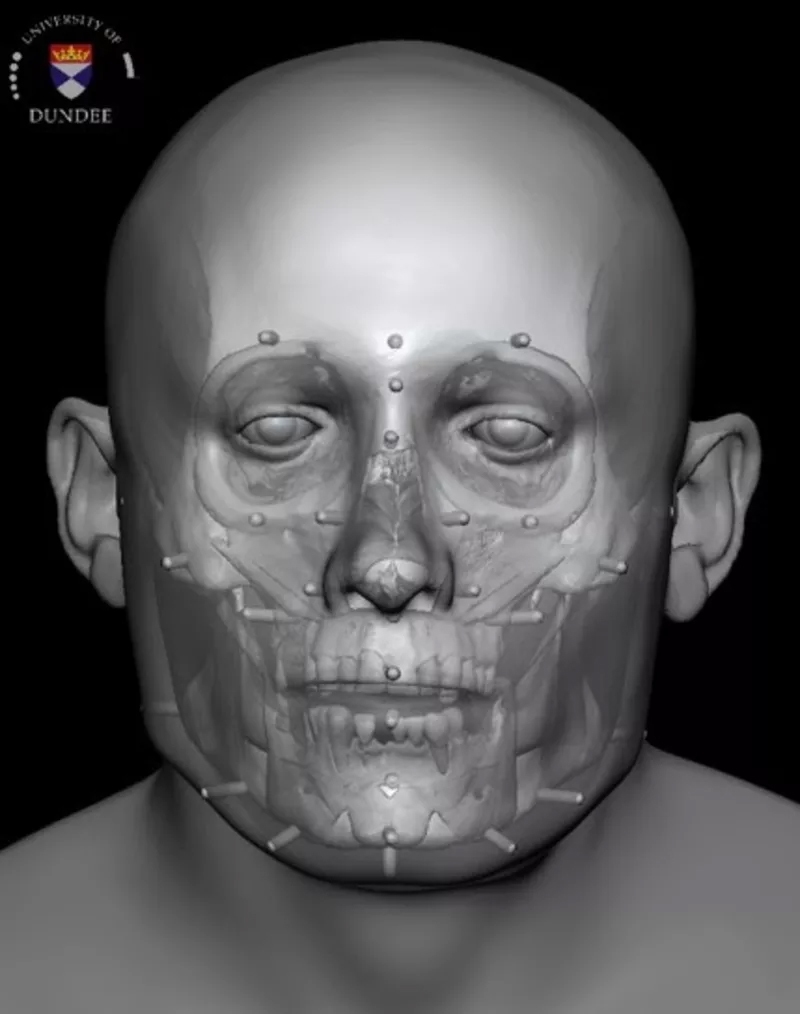
Digital forensics has become so advanced, it can give scientists a view into the past. Cambridge University researchers reconstructed the face of a 13th-century man in such vivid detail, it looks like a photo of his modern day descendant.
The face belongs to “Context 958,” a name given to the remains discovered with 400 other skeletons in Cambridge, England—one of Britain’s largest hospital graveyards ever found.

His face was reconstructed by Dr. Chris Rynn at the University of Dundee, which offers the only course on forensic art and facial identification in the world. “You can sort of split it into the living and the dead,” Dr. Rynn said of the art form, according to The Guardian. “I can’t leave this alone, it’s more of an obsession.”

Dr. Rynn’s obsession helped Cambridge archaeologists develop a biography for Context 958, who they estimate was 40 years old at the time of his death.
The tradesman’s remains showed evidence of a tough life filled bouts of illness and hard work, but he still ate like a wealthy man. Archeologists say he had a diet rich in meat and fish, according to the Cambridge release.
—RealClearLife
This article was featured in the InsideHook newsletter. Sign up now.






















